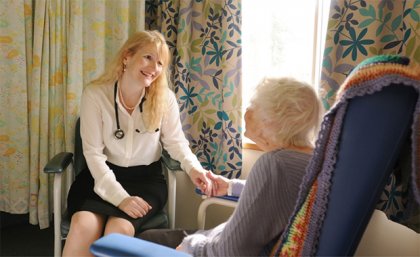
University of Queensland researchers have found older patients who experience delirium are three times more likely to develop dementia.
Professor Ruth Hubbard from UQ’s Centre for Health Services Research (CHSR) said the study also found that every episode of delirium increased the chance of developing dementia by 20 per cent.
“Delirium is an acute confusional state which particularly impacts older people and can have long term detrimental effects on patients,” Professor Hubbard said.
“Our study found that it is also strongly linked to dementia.”
The researchers analysed a cohort of more than 110,000 patients from New South Wales hospitals over five years.
Lead author and CHSR research fellow, Dr Emily Gordon, said more than 55,000 patients who had experienced delirium were compared to patients who had not.
“We paired the patients by matching certain criteria such as age, sex, frailty, reason for being in hospital, length of stay in hospital and length of stay in the intensive care unit,” Dr Gordon said.
“This was done to ensure we got as close as possible to isolating the impact of delirium on dementia risk, and to ignore the effects of other factors known to impact dementia, such as older age.
“We then followed both cohorts over five years to see whether they were eventually diagnosed with dementia.”
Dr Gordon said the findings highlighted the need for delirium prevention and care.
“Up to 40 per cent of delirium cases are preventable, and treatments are readily available,” Dr Gordon said.
“Measures to prevent delirium include keeping patients well nourished, hydrated and mobile.
“This study highlights the importance of delirium care and prevention - if we can reduce delirium, we may be able to reduce the global burden of dementia.”
The data for this study was managed by research partners at the Australian Institute of Health Innovation at Macquarie University.
The research paper was published in the British Medical Journal.
Media contacts
UQ Faculty of Medicine Communications
med.media@uq.edu.au
+61 436 368 746












